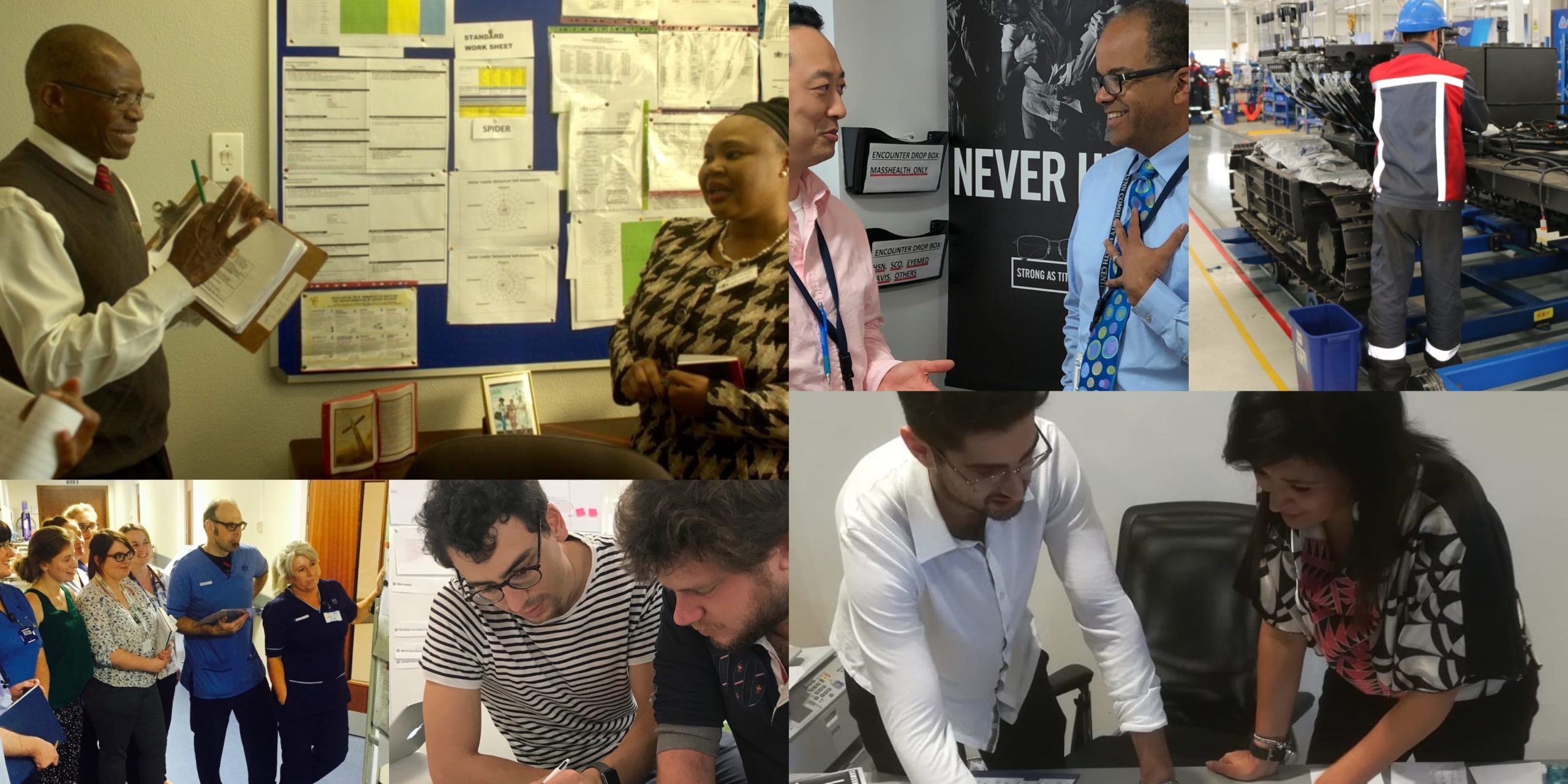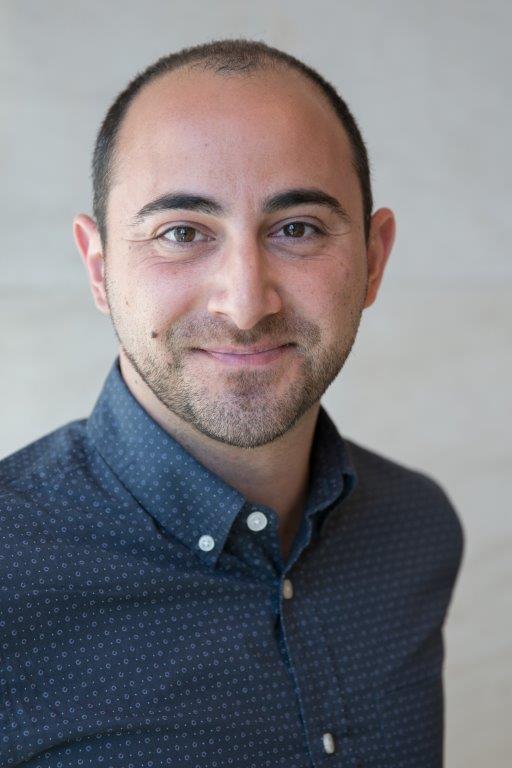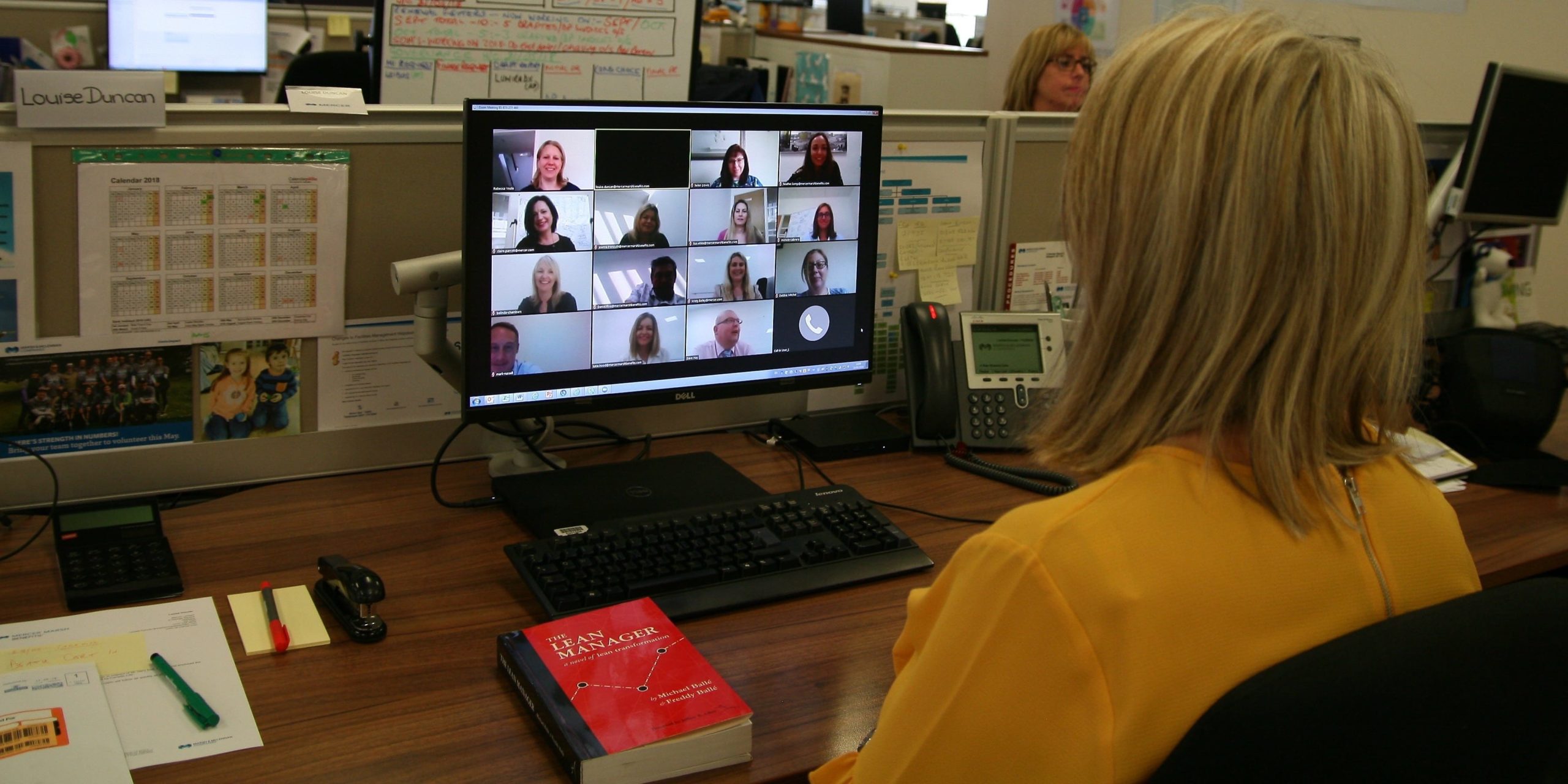
Lean thinker, I salute thee
ROUND-UP – As the year ends, our editor reflects on the state of the lean movement and looks back at the best articles published by Planet Lean this year.
Words: Roberto Priolo, Editor, Planet Lean
We keep hearing that lean is under threat. Whether it’s the spoils of Six Sigma, the methods recently brought forward by Lean Startup or the generically-termed Operational Excellence, cautionary tales about what new methodology will take the business world to storm seem to abound. Something of a “Ghost of Lean Yet to Come” that would have us believe that our movement is done with. I, for one, wouldn’t call in the coroner just yet.
As part of my job editing Planet Lean, I have the privilege of directly interacting with lean practitioners around the world, which allows me to take the pulse of our community on a regular basis. What I see is a thriving movement of enthusiastic and curious people who are doing their best to improve the world around them. I am continuously inspired by their determination and drive, and I consider myself lucky to be asked to tell their stories.
This doesn’t mean that we can get complacent, because the lean movement needs constant nurturing. To an extent, it is true that lean faces competition from improvement methodologies old and new, but I also believe that its superiority has been proven over and over again. What I also think is that, as a community, we have something of a marketing problem: we need to do a better job at communicating our mission and potential, and at showing what our competitive advantage is. This is true, more than anything, for lean companies – which I encourage to share their experience with the world. It’s the only way we have to spread the knowledge we need to keep progressing.
What does it mean to share our experience? And how do we do it? First of all, we need to document the current state of things and use the lessons we learn to inform the work we need to do to reach our ideal state. Secondly, we need to share our successes and our difficulties to help others who are also undertaking the same journey.
I am proud of the contribution that Planet Lean is making to the lean community by documenting lean transformations and experiments taking place around the world and sharing those stories with our audience. This year alone we have published 128 articles, which I hope you have found of help.
As we approach the end of 2018 and enjoy the holidays – a time for reflection and celebration – I want to use this article to salute all the lean practitioners around the world who are working so hard to bring change to the world around the world. The operators that are trying new ways of running the production line, the nurses and doctors that are devising better ways to provide care, the construction companies that are making the work safer for their people, the government organizations that are striving to make better use of taxpayers’ money, and all the companies out there that are making an effort to become good employers, improve working conditions for their employees and service to their customers, and reduce their impact on the environment.
Those who consider lean thinking dead will be sad to hear that it is still spreading to new environments and sectors. This year alone, PL has reported on the lean transformations of a hotel in Tenerife, a digital advertising company in Melbourne, a lean veterinarian in Barcelona, a testing laboratory in Turkey and even a theater production company working in a Norwegian amusement park. As new industries embrace lean thinking (like mining and oil & gas), we continue to see game-changing experiments taking place – like the ones that recently took place in a restaurant kitchen in Boston, USA or in this Italian high school.
In 2018, like every year, we were reminded that if we don’t come together to learn from one another, we can’t expect our lean progress to be as fast. Our Lean Global Network colleagues in Barcelona have a lot of experience with this, having facilitated the creation of a lean healthcare cluster in Catalunya that is proving very successful. In this video, Oriol Cuatrecasas reminded us of the power of cross-pollination. We are lucky to see many examples of effective cross-pollination in the lean world: they typically stem from an organization that has succeeded at turning itself around, which decides to share what it’s learned along the way. One such firm is the Instituto de Oncologia do Vale near São Paulo, Brazil. Having learned loads from a manufacturing company operating in their town, IOV have begun to spread the lean word with other companies, operating in and outside the healthcare sector (including insurance company Sulamerica). Do you want another example? How about Nibbly Bits? This South African bakery read The Lean Bakery and found enough inspiration in it that it decided to initiate its own lean journey. Speaking of our beloved lean bakery, have you seen how they run their HR process? On a single wall! (Another great example of lean applied to recruiting can be found here.)
One of the most interesting topics we have covered this year, thanks to our collaboration with software company Theodo, is the application of lean thinking to the digital world. In their series of articles, Theodo have showed us how impactful kaizen can be in an environment like theirs. Lean thinking is being hugely influenced by technology, as more and more companies explore the synergies between two worlds that until recently weren’t really talking to one another. At the Halfway Group in South Africa, for instance, the manager of a vehicle preparation center has taught himself to create Apps that make the work of his people easier. I am sure this example will inspire many in our community!
If you are still looking for proof that the improvement that lean thinking generates leads to innovation and, therefore, a real competitive advantage, look no further than AIO. This tech company in France – our gemba walkerextraordinaire Catherine Chabiron shared their story here – was able to reinvent itself as a karakuri kaizen coach.
In 2018, we have kept referring to the basic principles of lean thinking, as expressed by Toyota. In this interesting piece, Michael Ballé and Daryl Powell looked at the elements underlying the Toyota Production System that made it a success for over half a century. Speaking of endurance, have you read Jim Womack’s column reflecting on what prevents us from sustaining lean change? It’s a lesson in how to change a management system. There is no doubt in my mind that another way to ensure a future for our organization is living and breathing the lean idea of respect for people: a few months ago, a dealership principal in Cape Town told us what this truly means. Caring for people means to care for our future in the business world.
One of the things I love the most about the lean movement is how quickly it evolves. I have been part of it for just over seven years, and I have already witnessed more developments than I can remember. One recent development I have observed is an increased interest in leveraging lean thinking to provide a holistic approach to people development, one that accompanies individuals throughout their education and career. A single value stream for capability development, so to speak. We even heard from a school in the United Kingdom that is striving to rethink learning altogether, using lean thinking to give it a lifelong scope.
As I reflect on the evolution of our movement, I can’t not mention one of 2018’s best pieces for Planet Lean: LGN’s Chairman John Shook devised the “inverted funnels” model to offer an overview of the ingredients, incubation and diffusion of lean thinking. It’s a thought-provoking and eye-opening analysis of where we come from, where we are and where we might be headed.
I would like to thank you all for supporting Planet Lean this past year. In wishing you all a fantastic 2019, I want to tell you how much I look forward to continuing working together for the advancement of lean thinking and practice. We are all responsible for it.
THE AUTHOR

Roberto Priolo is a Barcelona-based journalist and the Managing Editor of Planet Lean. Prior to joining the Lean Global Network and launching Planet Lean, Roberto was editor of the Lean Management Journal and associate editor of The Manufacturer magazine. He holds a degree in Political Sciences from the Università Cattolica in Milan, Italy, and a postgraduate diploma in journalism from the London School of Journalism.
Read more


FEATURE – Lean has now been around for quite some time, and its impact on business world is hard to dispute. But what does it tell us about traditional management practices?



FEATURE – A UK-based team of client services managers working for HR consultancy Mercer is using a virtual book club to take their first steps into the world of lean thinking.


FEATURE – The role of experts in lean thinking is often the subject of heated discussions. Here, Michael Ballé tells us about the common mistakes lean experts make, and explains why – before helping others – they should help themselves.


FEATURE – In this personal account, the author explains how Lean Thinking inspires her painting process, debunking the myth that the methodology stifles creativity.

